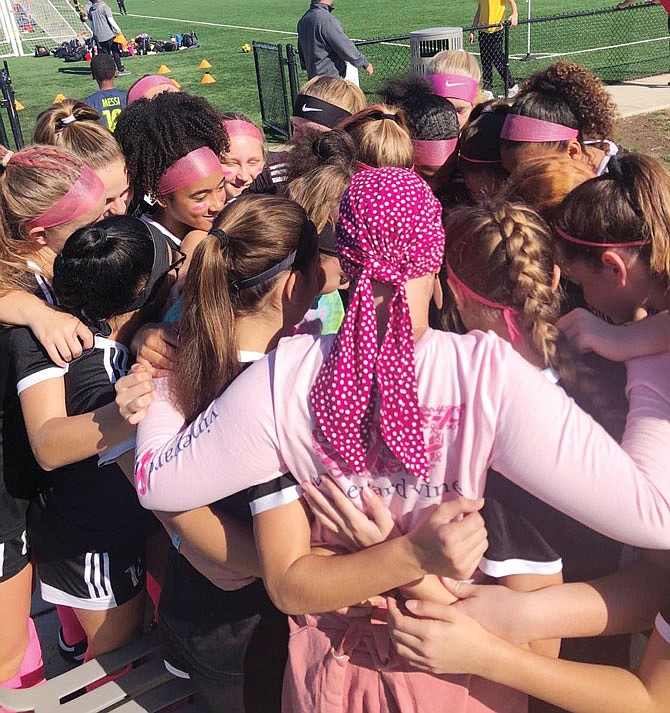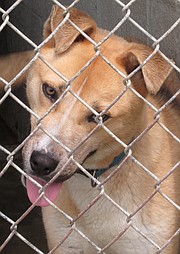Over the next few weeks, the Fulton Sun will be highlighting local cancer survivors and caregivers ahead of the annual Relay for Life of Callaway County event, which is being held virtually this year. The first installment of the series focuses on local breast cancer survivor Lindsey Dyro.
Lindsey Dyro used to think about cancer the same way many people do - as a terrible illness, but not one that was going to play a role in this phase of her life.
By the time women are in their 40s and 50s, health professionals recommend annual or biannual breast cancer screenings. But Dyro was only 39 when she was diagnosed with stage one invasive ductal carcinoma after a preventative mammogram.
Last summer, Dyro's mother was diagnosed with breast cancer. Because women with close relatives who've been diagnosed with breast cancer have a higher risk of developing the disease, the doctors recommended Dyro and her sister get checked out as well.
"And she was like, 'Oh, well, both of my daughters are in their 30s,'" Dyro said. "They were like, 'No. No, they need to be checked.'"
Dyro immediately scheduled an appointment, but she wasn't too worried.
"I think the first time I went for a mammogram, I literally thought I was checking it off my list," Dyro said. "You know, like, I'm the teacher, I'm gonna do it in the summer, and then I won't have to worry about this anymore."
Between the initial mammogram and the official diagnosis, Dyro had to go to a series of appointments. It quickly became clear that everything was not all right.
"By the time of that third appointment, I was like, OK, just tell me already, like, I already know," Dyro said. "I could feel it, you know? But then when they actually say it, you're like, 'Are you serious?' I mean, it's just - it's shocking."
She wasn't sure what to think or do. In an odd turn of events, Dyro's cancer wasn't related to her mom's illness.
"My cancer is not related to my mom's at all - it was like a fluke thing that we both had breast cancer; but ours are two different types of breast cancer," Dyro said.
Dyro and her husband, Ryan, have two children, Madison, 16, and Nicholas, 14. Her main goal was to keep life as normal as possible for her children.
"In the beginning, at least for me, you don't know how bad it is," Dyro said. "Is it everywhere? Am I gonna die from this? Am I gonna like see my kids graduating?"
Dyro, who works for Fulton Public Schools as an English as a Second Language teacher, tried to keep busy and stay positive.
"For me, it really helps that my kids are both playing sports," she said. "This did not stop me. It slowed me down, but it didn't stop me from supporting my kids."
With everyone she knew wanting updates, Dyro set up a Facebook group to document her experiences and communicate with friends and family.
"Literally from the time I was diagnosed, like that week, people were texting me, and I don't know what to say," she said. "I don't want to email 100 people after my appointment to tell them what was going on."
Writing about her experiences in the Facebook group helped her process what was happening while reassuring her loved ones.
"It was a great source for me to say, this is how I'm feeling," Dyro said. "I really wanted to be transparent. People treat you differently, and I wanted people to not feel like they had to ask me how I was every second, but they could read."
While some friends wanted to know every detail, others clung to normalcy.
"Some people want to reach out and ask you, 'How are you?' every day, and some people want to pretend like you have hair and nothing is going on - and that doesn't mean they care about you any less," Dyro said.
In August, 10 days before her 40th birthday, the group flooded with messages of support as she underwent surgery.
"A fun way to spend your 40th," Dyro said dryly.
Friends came by with cake and flowers, and she was feeling well enough to go out with her husband to drop off one of their children in Jefferson City for soccer practice and enjoy cheesecake at Arris' Bistro.
"I remember that night thinking I felt so good," Dyro said. "Now I look at pictures, and obviously, I was not really feeling good. But I thought I felt great after 10 days."
In September, she began chemotherapy. For each chemotherapy appointment, her husband took off work to keep her company. A revolving host of friends and family visited as well.
"I knew I had to get this treatment, but I didn't want to think about what I was doing when I was there," Dyro said. "The nurses I think probably disliked me there because it was like social hour - my friends would stop in, and they would bring me Panera or Slim Chickens."
In January, she had her last chemotherapy treatment.
"Now I'm just healing," Dyro said. "I'm cancer-free."
She'll still have to take pills daily and go to the hospital for monthly injections, but life has begun to settle back to normal.
Dyro feels lucky they caught the cancer early, and she finished treatment before the outbreak of COVID-19. Now, she's staying home with her family instead of worrying about hospital visits and treatments.
"Our kids are so busy and teenagers, so to be able to eat dinner together every night and watch movies and get projects done in the house that we haven't had time for before - that part's been awesome," she said.


